Birds are fascinating creatures, and their behaviors often pique our curiosity. One such behavior that may have caught your attention is their tendency to sit with their beaks open. What’s behind this intriguing display?
The primary reason bird sitting with mouth open is thermoregulation, or in simpler terms, temperature control.
Unlike humans who sweat to cool down, birds lack sweat glands. So when overheated, bird panting with mouth open similar to how dogs cool themselves off.
Another possible explanation for a bird sitting with mouth open is stress or illness. Birds are notoriously good at masking symptoms of sickness until it becomes severe; an open beak could indicate respiratory distress or dehydration among other ailments.
In summary, while seeing a bird beak open widely might seem peculiar to us, it’s typically part of these feathered friends’ survival strategy – whether for staying cool or signaling health problems.
As nature enthusiasts or bird owners, understanding such behaviors can help us better appreciate and care for our avian companions.
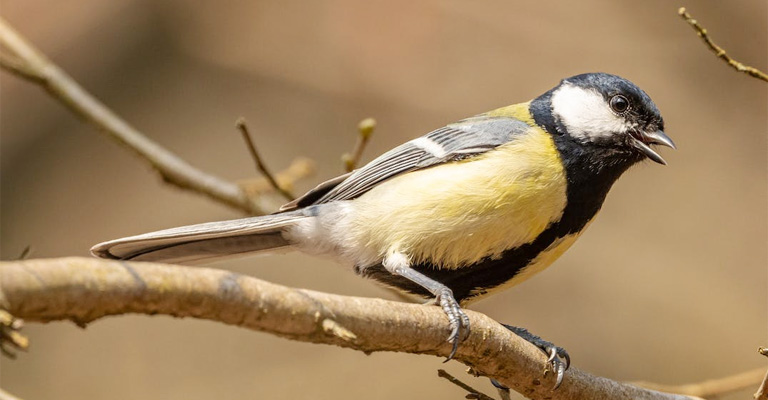
Why Do Birds Sit With Their Beaks Open?
Birds come with a very advanced respiratory system which allows them to breathe more easily than humans also.
So if you notice a bird panting with its mouth open there may be a few possible reasons why do birds keep their mouth open. Below the possible reasons are described with the solutions :
Fear or Stress
If a bird sees a threat it becomes anxious and stressed about it. This usually happens when the bird is in the cage and it cannot fly away from the threat.
And if it feels being attacked by a predator or feels like it is at risk and if it can’t get away from the distance, then it would pant with its mouth open.
Overheating
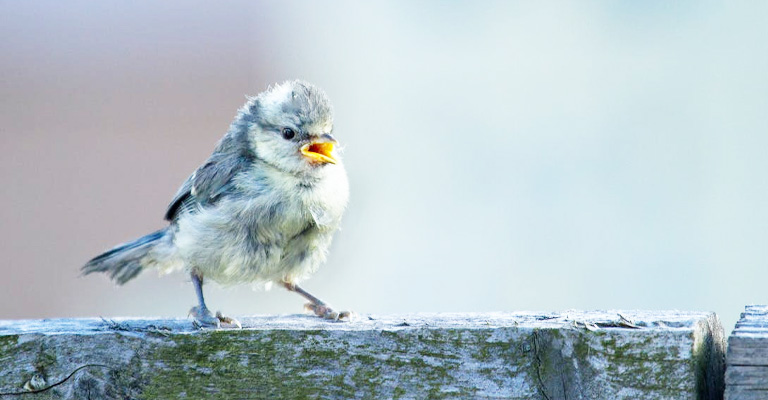
Overheating is a very common reason for bird panting with mouth open, especially if it’s very hot in your area. Then birds sit with their mouth open to simply cool down.
Because like humans birds do not have sweat glands so like dogs they pant by keeping their mouths open and which promotes heat loss.
The birdie version of keeping the mouth open and panting like dogs is called gular fluttering. You might even notice the bird’s wings are fluffed out and the bird’s mouth is opened widely this is when they suffer from heat exhaustion and want to cool down as faster as possible
Exhaustion
If you see a nestling that is just learning to fly panting with its mouth open, then the most probable reason might be that it’s exhausted.
Baby birds are not used to flying and in the few days of birth their parents usually feed them so when baby birds start flying it takes a lot of toll on them.
These birds then start to pant and breathe. Just like human babies when they start learning to walk they get exhausted and injured pretty soon.
Enlarged Organs
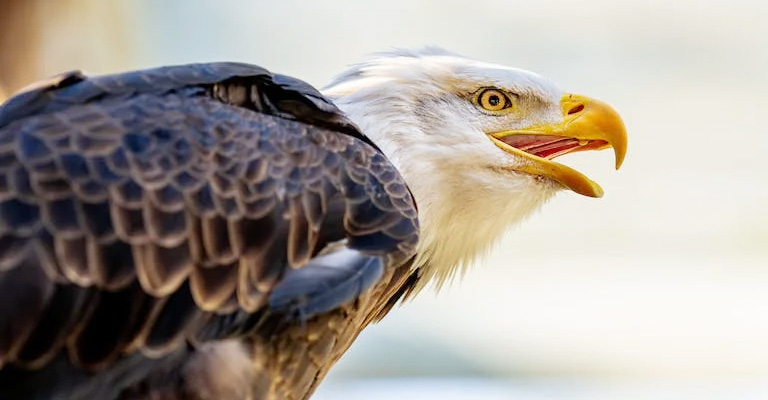
If a bird is sick and has an enlarged organ then it might the cause the bird to pant or simply have difficulty in breathing.
Usually, the enlargement of organs is caused because of any tumor or infection of the body. The large organ could put pressure on the bird’s system and it might pant.
Crop infection or Crop Stasis
Even crop infection can happen in any aged bird. But it’s common to see infected crops in baby birds. So what is crop stasis?
Crop stasis is the failure of the crop to empty the food which results in fermentation. The fermentation in the crop leads to yeast and bacterial infection. During crop infection, birds don’t want to eat and pant while breathing.
Energy efficiency
By opening their beaks and panting, birds increase the airflow over their respiratory surfaces, which helps them lose heat without expending too much energy. This behavior is an energy-efficient way to regulate their body temperature in hot environments.
Feathers and insulation
Birds have feathers that act as excellent insulation, trapping heat close to their bodies. When the ambient temperature is high, they may resort to panting with their beaks open to enhance evaporative cooling and counteract the insulative effect of their feathers.
Unique strategies
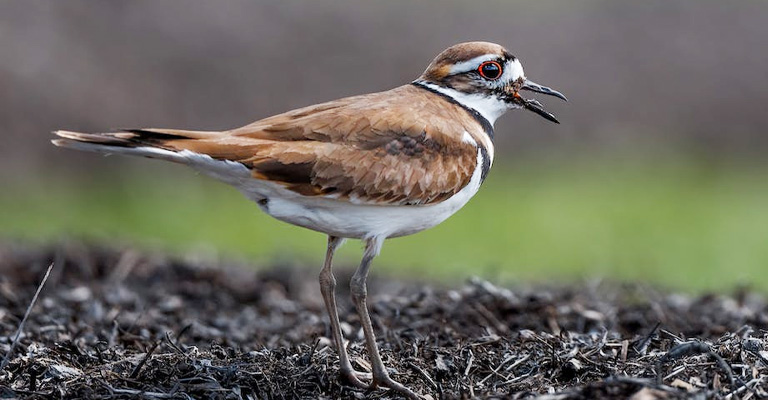
Different bird species have evolved specific adaptations to deal with heat stress. For example, some species may employ behavioral strategies like spreading their wings or standing in the shade to expose a larger surface area for cooling.
Beak coloration can also influence heat absorption, with lighter-colored beaks reflecting more sunlight.
Water conservation
Panting can cause birds to lose water through evaporation, and in arid environments or during periods of limited water availability, birds may minimize water loss by partially opening their beaks instead of fully gaping.
Helping Birds Cope with High Temperatures and Prevent Heat Stress
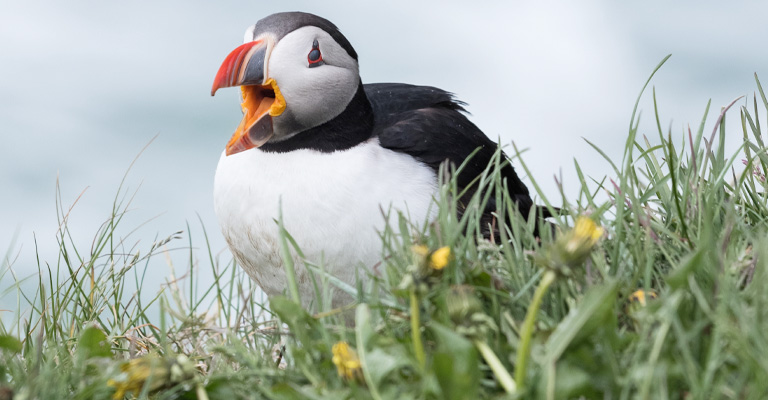
To help birds cope with high temperatures and prevent heat stress, here are some proactive measures you can take:
Provide fresh water
Set up bird baths or shallow dishes of clean, fresh water in shaded areas of your yard or garden. Ensure the water is replenished regularly, especially during hot weather, to give birds a reliable source of hydration.
Create shaded areas
Plant trees, and shrubs, or install artificial structures like birdhouses or pergolas to create shaded areas where birds can seek refuge from the direct sun. This provides them with cooler spots to rest and helps reduce the risk of heat stress.
Offer food sources
Supply bird feeders with a variety of bird-friendly food, such as seeds, suet, and nectar, to attract a diverse range of bird species. Providing ample food resources helps birds conserve energy and reduces the need for them to forage in extreme heat.
Use misters or shallow pools
Install misters or sprinklers in your garden to create fine water droplets that birds can fly through, mimicking a natural cooling effect. You can also set up shallow pools or create puddles to attract birds for bathing and cooling off.
Plant native vegetation
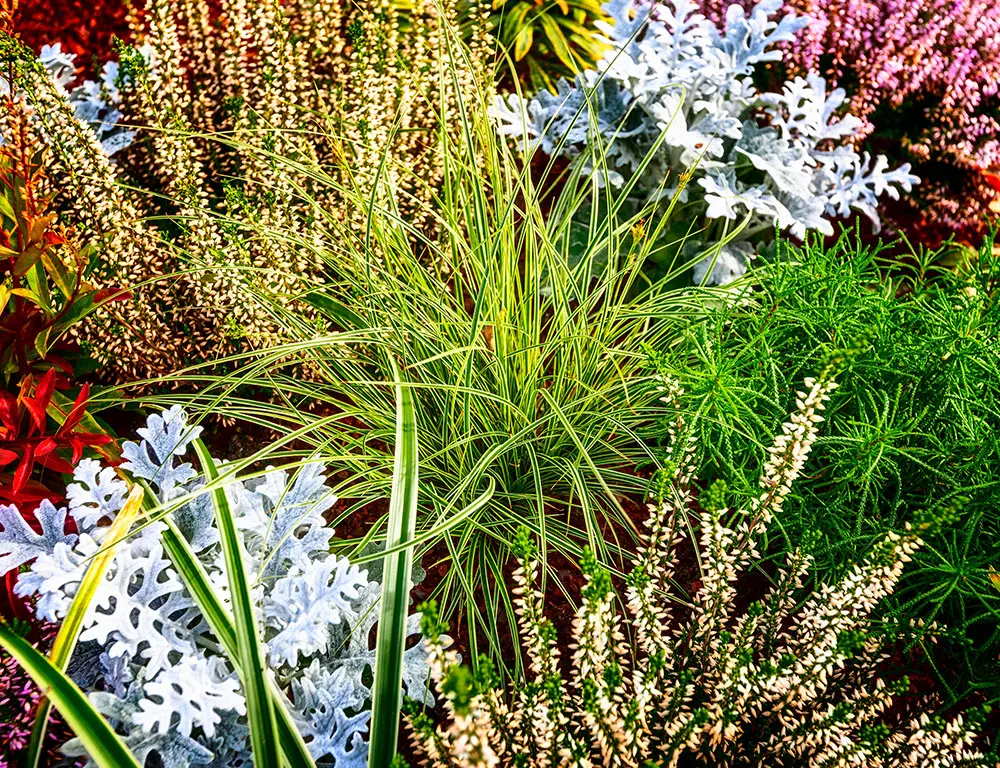
Choose native plants that offer birds natural food sources, shelter, and nesting sites. Native plants are typically well-adapted to the local climate, making them more resilient during extreme temperatures and supporting the local bird population.
Reduce pesticide use
Minimize or avoid the use of pesticides and herbicides in your garden. These chemicals can be harmful to birds and disrupt their natural feeding habits. Instead, embrace natural pest control methods or opt for organic alternatives.
Provide nesting boxes
Install bird nesting boxes appropriate for the bird species in your area. These boxes offer shelter and safe places for birds to raise their young, reducing their exposure to extreme heat.
Raise awareness
Educate others about the importance of creating bird-friendly habitats and the potential risks birds face during hot weather. Encourage your community to take steps to protect birds and their habitats.
Common Bird Species that Exhibit this Behavior
Bird panting with mouth open is a behavior often observed in many different avian species. This physical act, known as “gaping,” can serve a variety of purposes, from cooling down to communication. Several bird species are particularly known for this behavior.
American Robin
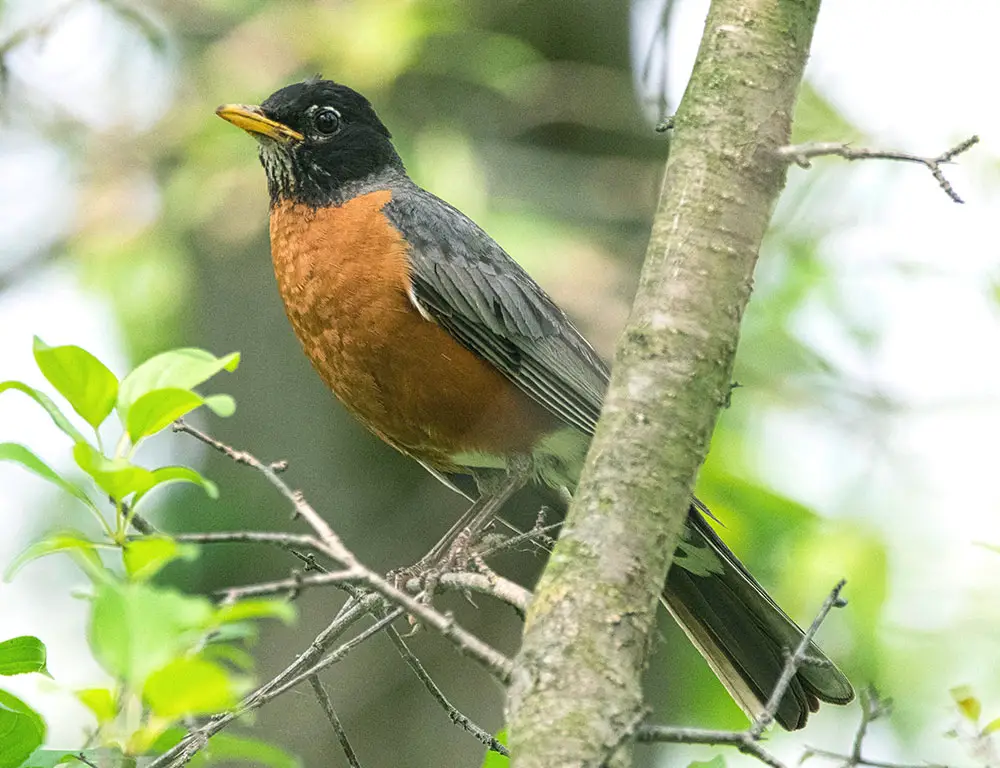
It’s not unusual to see these birds on a hot summer day with their beaks wide open. They’re doing what’s called “panting.” Like dogs, robins don’t sweat and use panting as a method to cool off.
Crows and Ravens
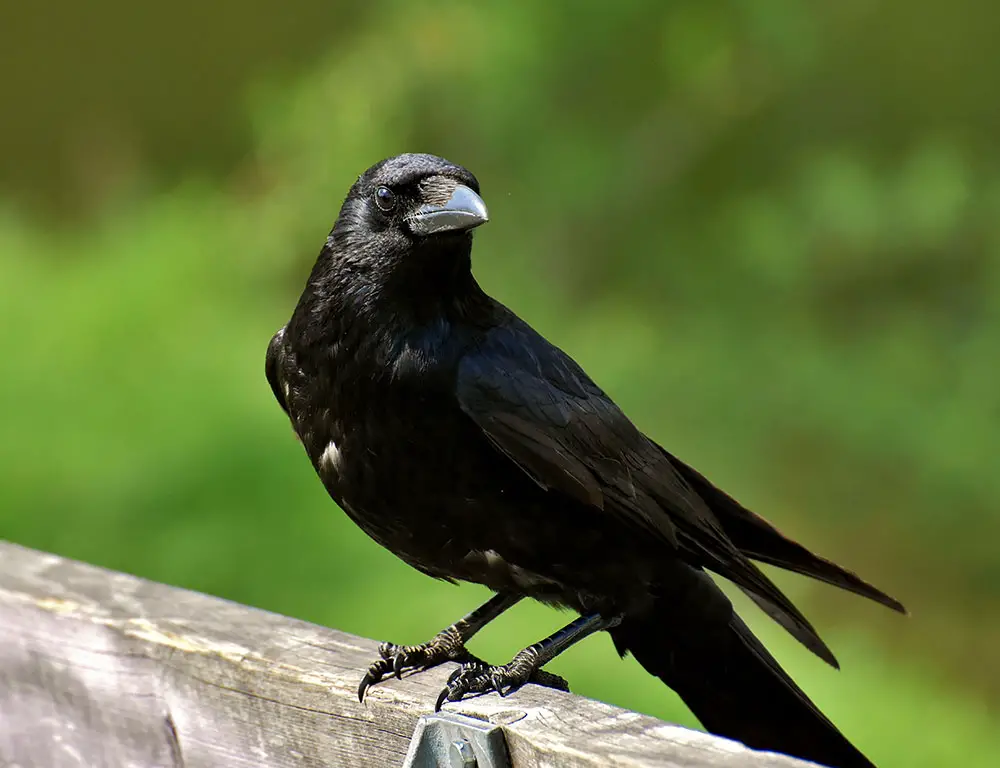
We have crows and ravens who also display this behavior quite often. Known for their intelligence, these bird species sometimes sit with their beaks open as an intimidation tactic towards potential threats or rivals.
Parrots
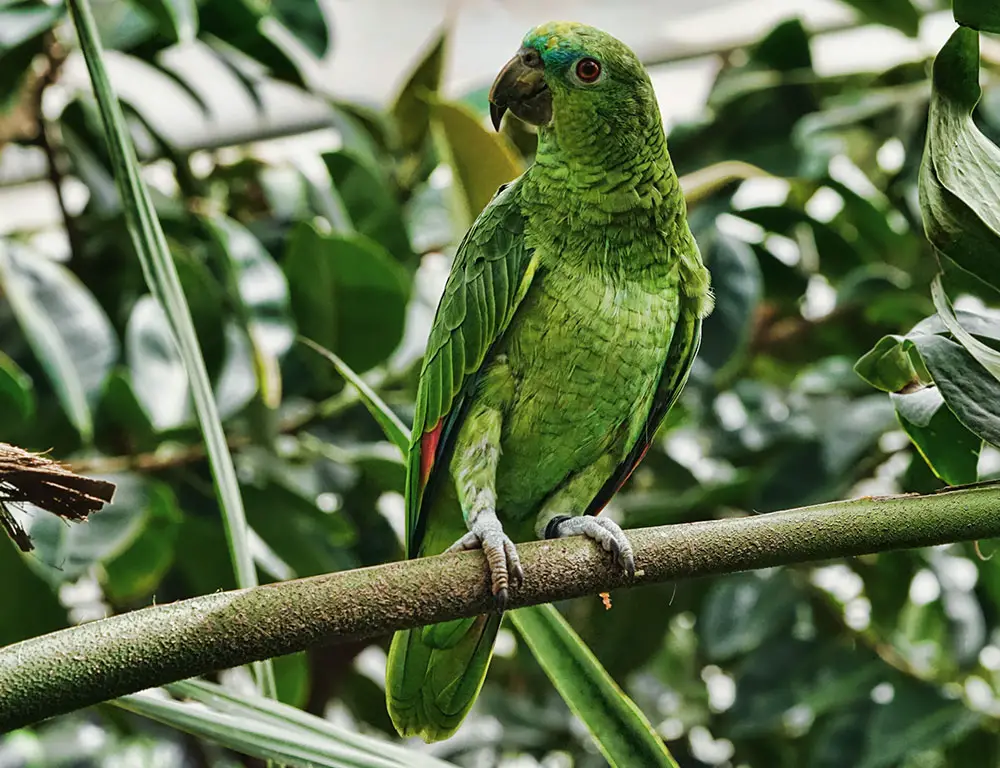
Parrots too, are another set of birds you’ll find with their beaks agape more often than not. Besides using it for temperature regulation, parrots may open their beaks while playing or interacting with other birds in social situations.
Hummingbirds
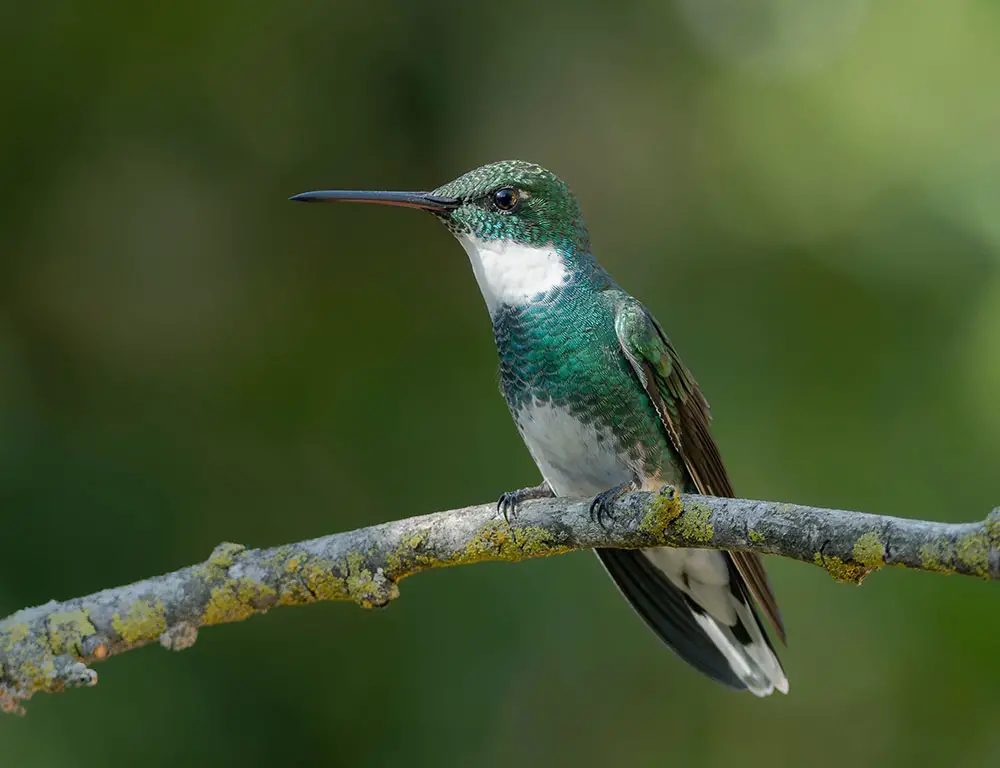
Hummingbirds might look like they’re resting when they perch with an open bill but in reality they could well be thermoregulating – managing body heat by releasing excess warmth through the throat area.
Conclusion
Why do birds keep their beaks open can be because of any of the reasons above. Whatever, the reason is if it’s a predator, an enlarged organ, or just heat exhaustion if you observe the bird carefully you will notice why the bird is panting.
Whenever you notice a bird sitting with its beak open, try to give it relief by taking action as soon as possible.